Sign up. Be inspired. Get clicking.
What is the goal of sustainable aviation fuel?
1 January 2023
Sustainable aviation fuel (SAF) is an environmentally sound alternative to traditional jet fuel. It aims to reduce the carbon footprint of flying. The global aviation industry is striving for carbon neutrality by 2050, and SAF is a crucial component of this strategy.
SAF is produced from non-petroleum sources such as waste, wood, and agricultural residues. This makes it significantly cleaner than conventional jet fuel and has the potential to substantially lower greenhouse gas emissions. The world's airlines have ambitious plans for SAF usage, targeting 3 billion gallons by 2030 and 35 billion gallons by 2050. This will contribute to decreasing the aviation industry's carbon footprint.
Currently, aviation accounts for 2% of global CO2 emissions and 12% of transport emissions. With the support of governments and ongoing research, efforts are being made to make flying more sustainable.
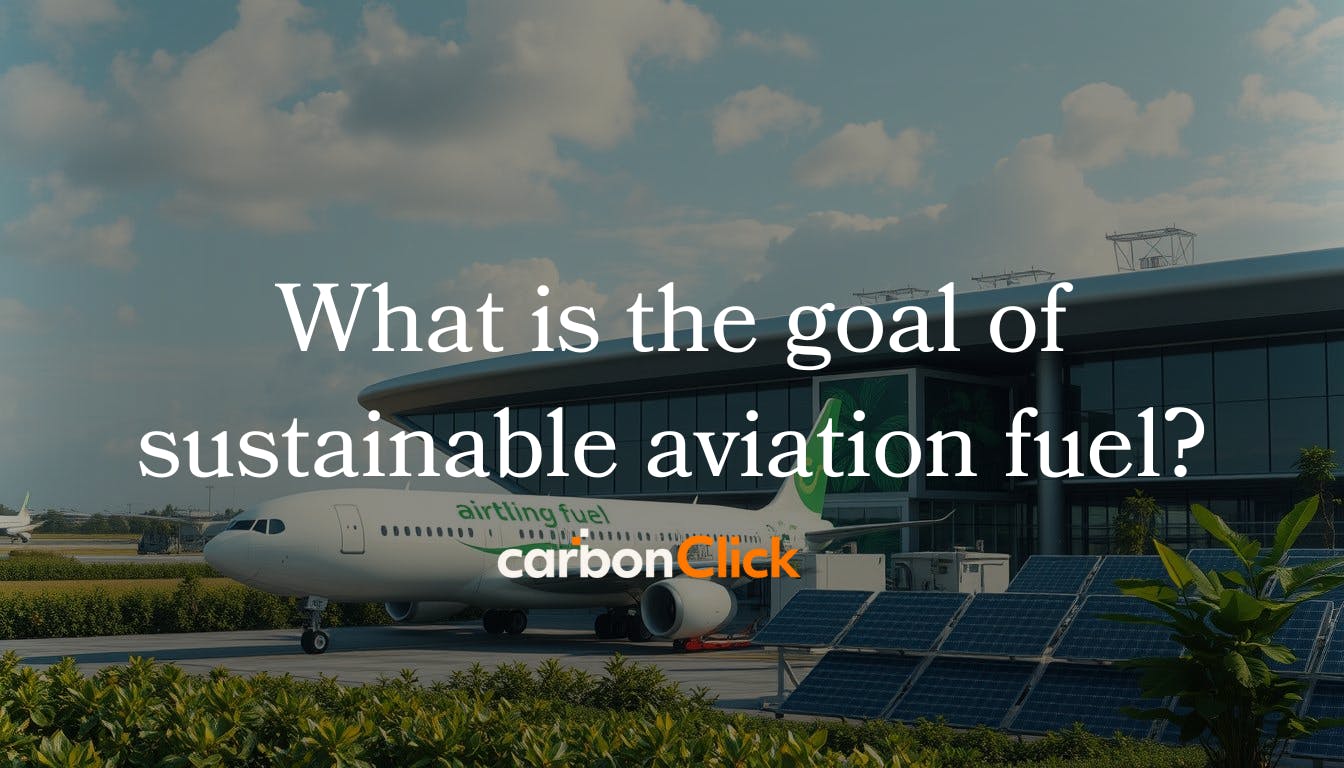
Introduction to sustainable aviation fuel (SAF)
Sustainable aviation fuel (SAF) is produced from non-petroleum sources and aims to reduce emissions from flying. This sustainable jet fuel can be blended with conventional jet fuel, typically in proportions ranging from 10% to 50%.
Over 360,000 flights have utilised renewable aviation fuels at 46 airports, predominantly in the US and Europe. The aviation sector is responsible for approximately 2% of global CO2 emissions and constitutes 12% of CO2 emissions from transport. ICAO's CORSIA scheme aims to keep CO2 emissions from aviation at 2020 levels until 2035, making alternative aviation fuels essential to achieving these targets.
SAF production and blending
SAF is derived from renewable biofuel sources such as waste, wood, and oils. Companies like World Energy, Neste, and Montana Renewables LLC are already producing SAF, aiding the industry in its transition towards low-carbon aviation fuel.
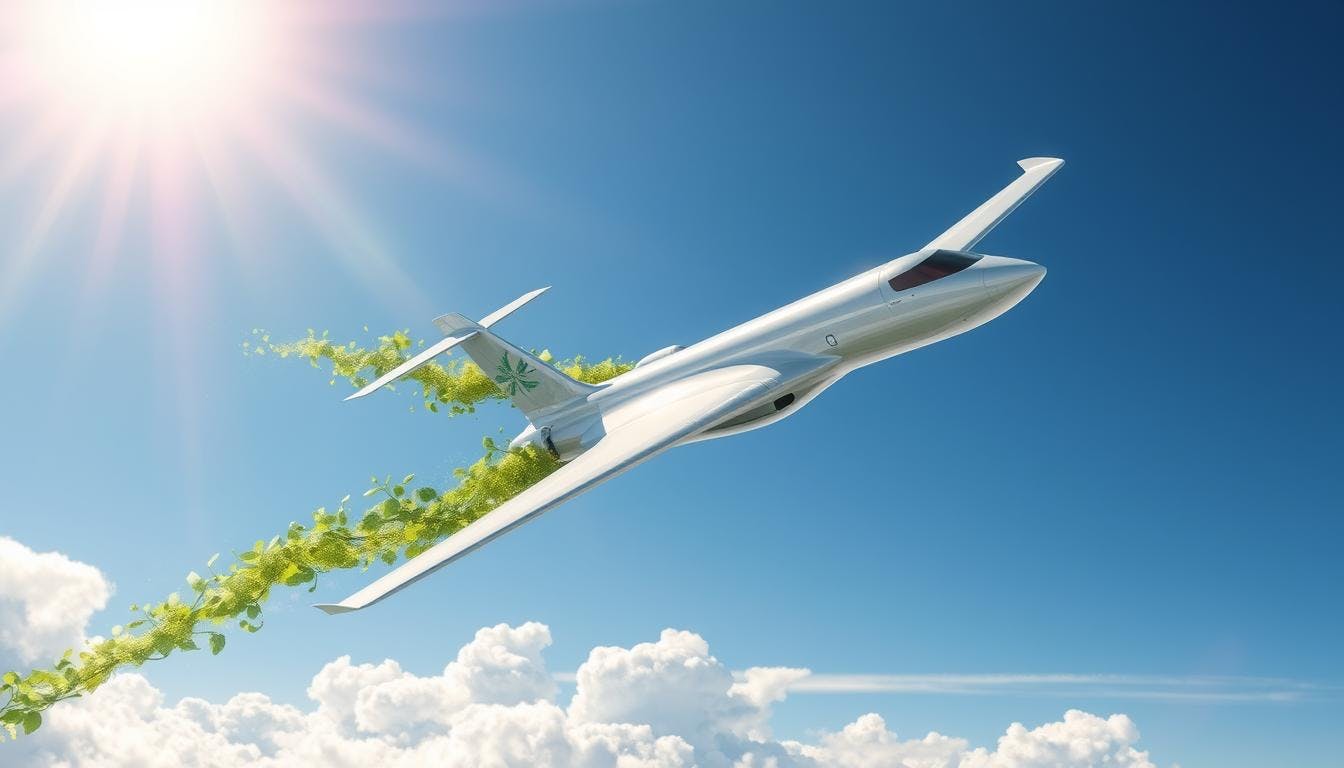
Benefits of sustainable aviation fuel
Sustainable aviation fuel (SAF) offers numerous advantages. It is compatible with existing jet fuel, making it easy to implement in aircraft and fuel stations. This compatibility allows for a transition to cleaner air travel without requiring significant changes.
SAF also plays a vital role in reducing emissions, with the potential to lower greenhouse gas emissions by up to 94% compared to conventional jet fuel. This represents a significant advancement towards the aviation industry's aim of achieving carbon neutrality by 2050.
SAF can be produced from various materials, including waste and plant oils, providing a versatile option for the aviation sector. It helps address the demand for cleaner fuels and supports a more sustainable future. The benefits of biofuel for aircraft and the advantages of low-carbon aviation fuel are evident. SAF is an essential component in making air travel more sustainable, and as we strive for a more sustainable future, SAF will contribute to reducing our carbon footprint.
The goal of sustainable aviation fuel
The aviation industry aims to achieve carbon neutrality by 2050, with Sustainable Aviation Fuel (SAF) regarded as a key solution. The Sustainable Aviation Fuel Grand Challenge seeks to utilise 3 billion gallons of SAF by 2030 and 35 billion by 2050, along with a target of reducing greenhouse gas emissions by 50%.
The International Civil Aviation Organization (ICAO) has established a goal to cut CO₂ emissions by 50% by 2050. The industry plans to produce 3 billion gallons of sustainable jet fuel by 2030, a crucial objective for the industry's sustainable fuel initiatives and for reducing carbon emissions.
Renewable and alternative aviation fuels are gaining traction. Experts assert that biofuels for aircraft and low-carbon aviation fuels are vital for business aviation to achieve net-zero emissions by 2050. The industry's sustainable aircraft fuel objectives and environmentally responsible jet fuel targets are driving the push for sustainability. SAF is poised to be a key player in realising these ambitions.
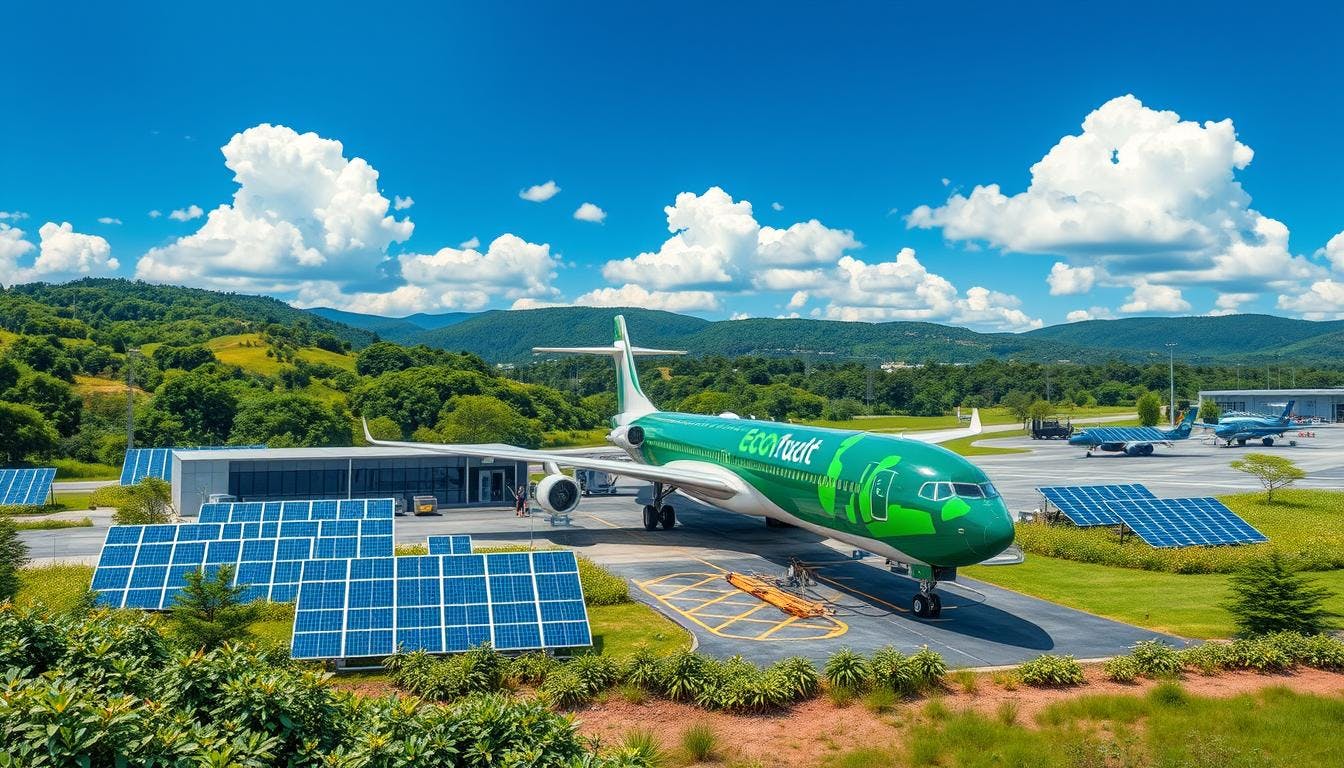
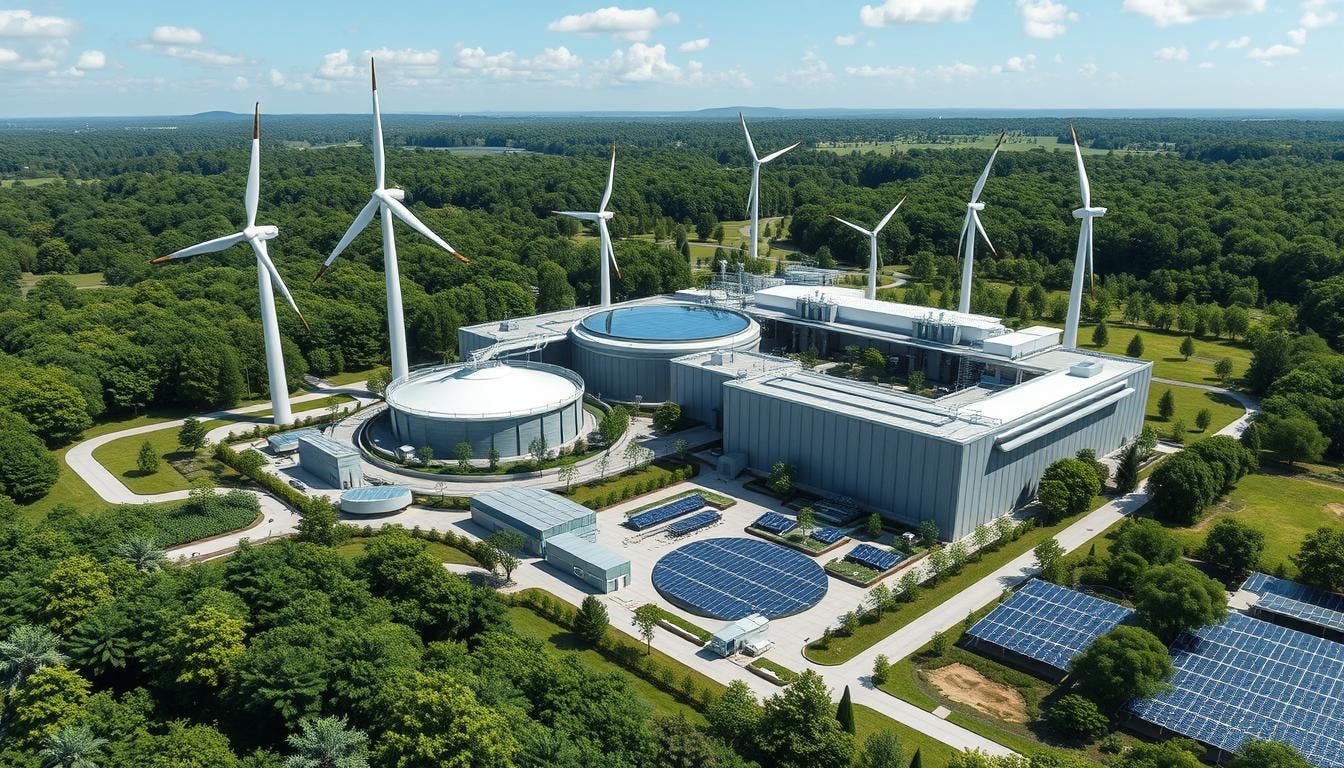
Production of sustainable aviation fuel
Sustainable Aviation Fuel (SAF) is produced from materials such as waste, wood, and oils. It serves as a sustainable alternative to conventional jet fuel and has the potential to reduce emissions associated with air travel. Companies like World Energy, Neste, and Montana Renewables LLC are now manufacturing SAF, indicating its growing significance in the industry.
Diverse feedstocks for SAF production
Sustainable jet fuel can be derived from a variety of sources, including waste, wood, oils, and more. This diversity enables the development of different methods for producing environmentally sound aviation fuel.
The biofuel sector for aircraft is expanding. World Energy began producing SAF in 2016, Neste followed in 2020, and Montana Renewables LLC partnered with Shell in 2023. These developments reflect the industry's commitment to reducing emissions.
There are multiple approved methods for producing alternative aviation fuels. However, the proportion of SAF that can be blended with conventional fuel depends on the specific production method used, ensuring that renewable aviation fuels are safe and effective.
Distribution and blending of SAF
Sustainable aviation fuel (SAF) is essential for making air travel more sustainable. It must be blended with conventional Jet A fuel before it can be used in aircraft, a crucial step in the transition to environmentally sound fuels for airports and airlines.
SAF can be blended with Jet A at oil refineries, facilitating its movement through the existing fuel supply chain. For SAF produced at biofuels plants, blending occurs at fuel terminals before the fuel is transported to airports via pipeline or truck.
Fuel quality is critical for aviation, and it is ideal for SAF to be certified as ASTM D1655 compliant before reaching airports. This certification ensures that the fuel is safe for use in aircraft without requiring any engine modifications. Blending simplifies the integration of SAF into the current sustainable aviation fuel supply and transport systems.
Enhancing the processes for blending and distributing renewable aviation fuels is vital. This improvement will help boost the use of sustainable jet fuel, which is important for reducing emissions from air travel.
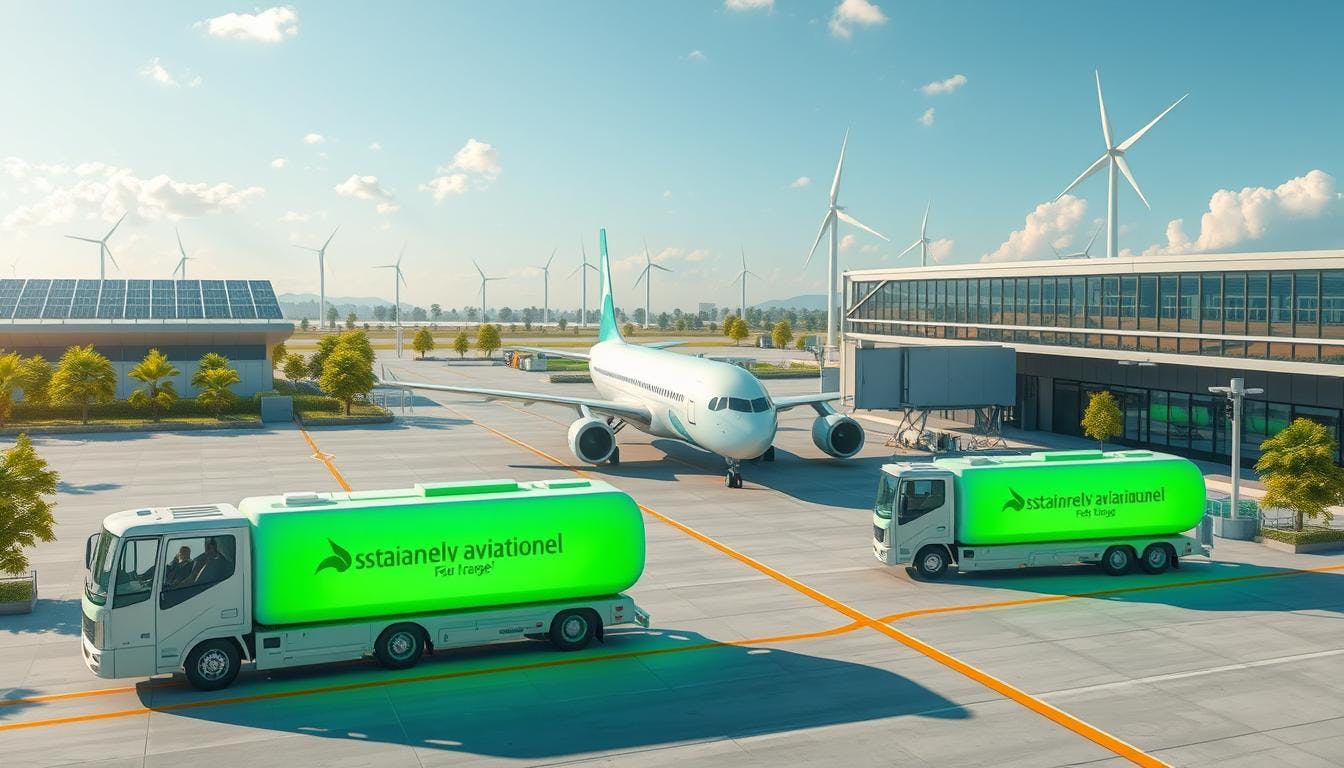
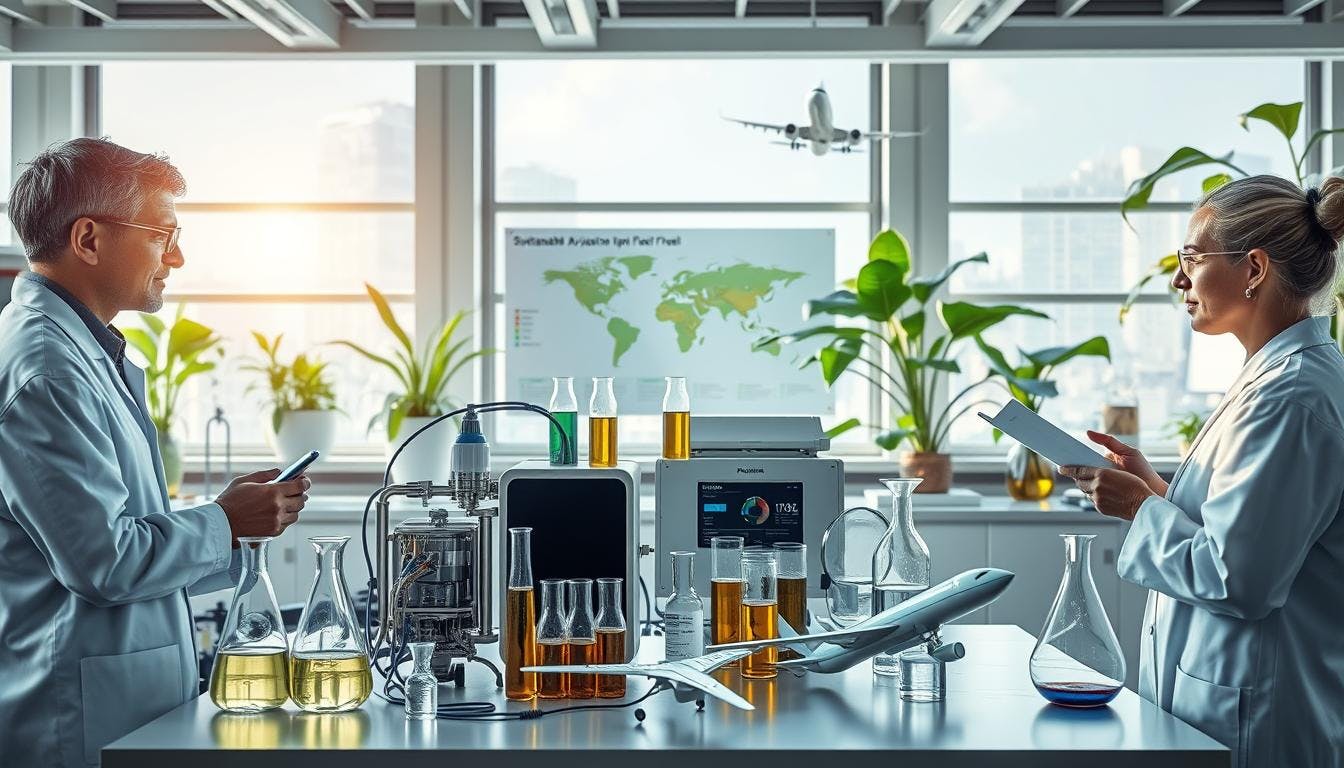
Research and development in SAF
The U.S. Department of Energy, the U.S. Department of Transportation, and the U.S. Department of Agriculture are at the forefront of sustainable jet fuel research. They collaborate on Sustainable Aviation Fuel (SAF), resulting in significant projects such as the Sustainable Aviation Fuel Grand Challenge Roadmap and the Sustainable Aviation Fuel Review of Technical Pathways.
Their focus also includes the Sustainable Aviation Fuel Tax Credit Analysis, the U.S. Airport Infrastructure and Sustainable Aviation Fuel report, and the Toward Net-Zero Sustainable Aviation Fuel With Wet Waste–Derived study.
The aviation industry is committed to sustainable jet fuel research, the development of renewable aviation fuels, and innovation in alternative aviation fuels. These projects aim to enhance sustainable aircraft fuel technology and advance research and development in aviation fuels. They also conduct testing on biofuels for aircraft to achieve advancements in low-carbon aviation fuels and breakthroughs in environmentally responsible jet fuel.
These initiatives are helping the aviation sector reduce its carbon footprint and pave the way for a more sustainable future. The industry’s ongoing research and development in sustainable jet fuel and renewable aviation fuels holds great promise.
Sustainable aviation fuel grand challenge
In 2021, the United States government launched the Sustainable Aviation Fuel Grand Challenge, marking a significant step towards making air travel more sustainable. This initiative is a collaborative effort involving the Departments of Energy, Transportation, and Agriculture, aiming to increase the use of sustainable jet fuel and reduce emissions.
The objective is to produce 3 billion gallons of sustainable aviation fuel annually by 2030, with a target of 35 billion gallons by 2050 to meet all aviation needs. Additionally, the goal is for these fuels to reduce greenhouse gas emissions by at least 50%.
To support these targets, the government has developed a comprehensive plan that includes monitoring progress in sustainable aviation fuel funding and biofuel production targets for aircraft. The overarching aim is to achieve carbon neutrality in flying by 2050.
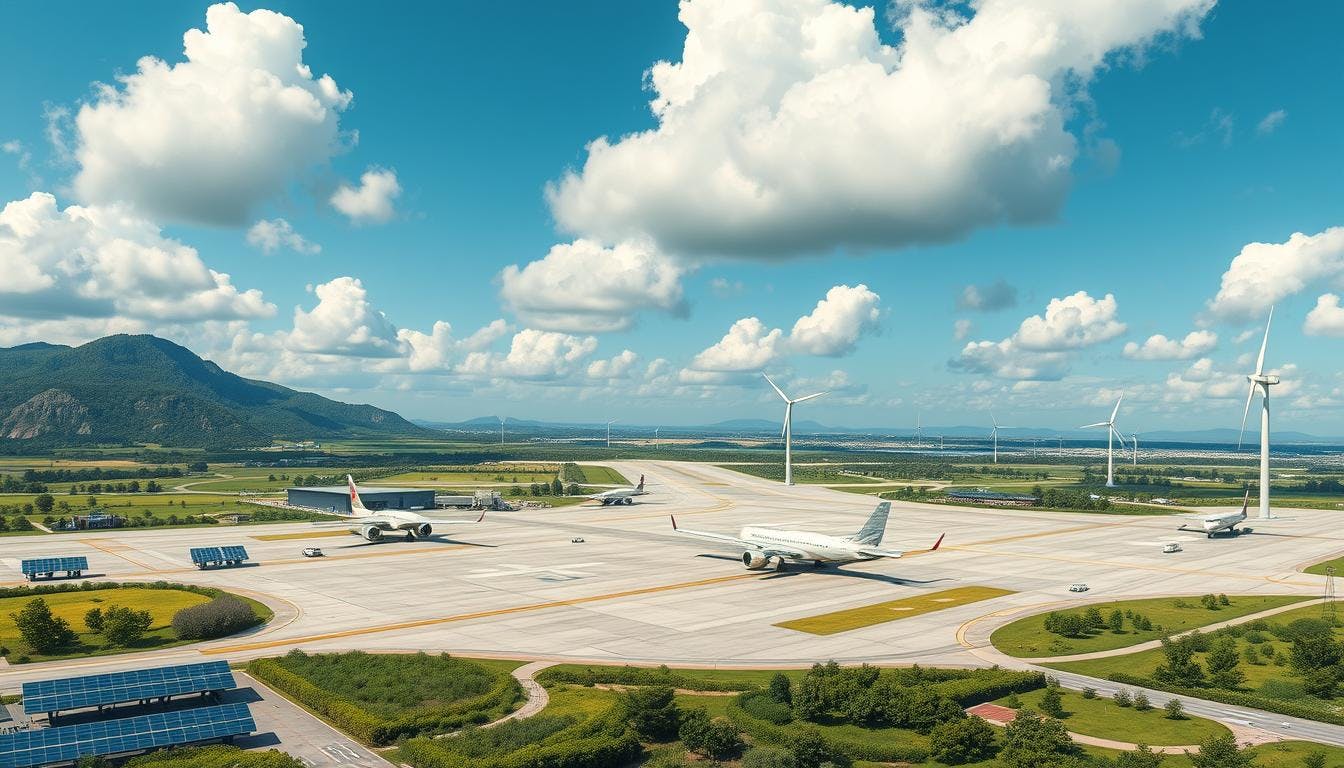
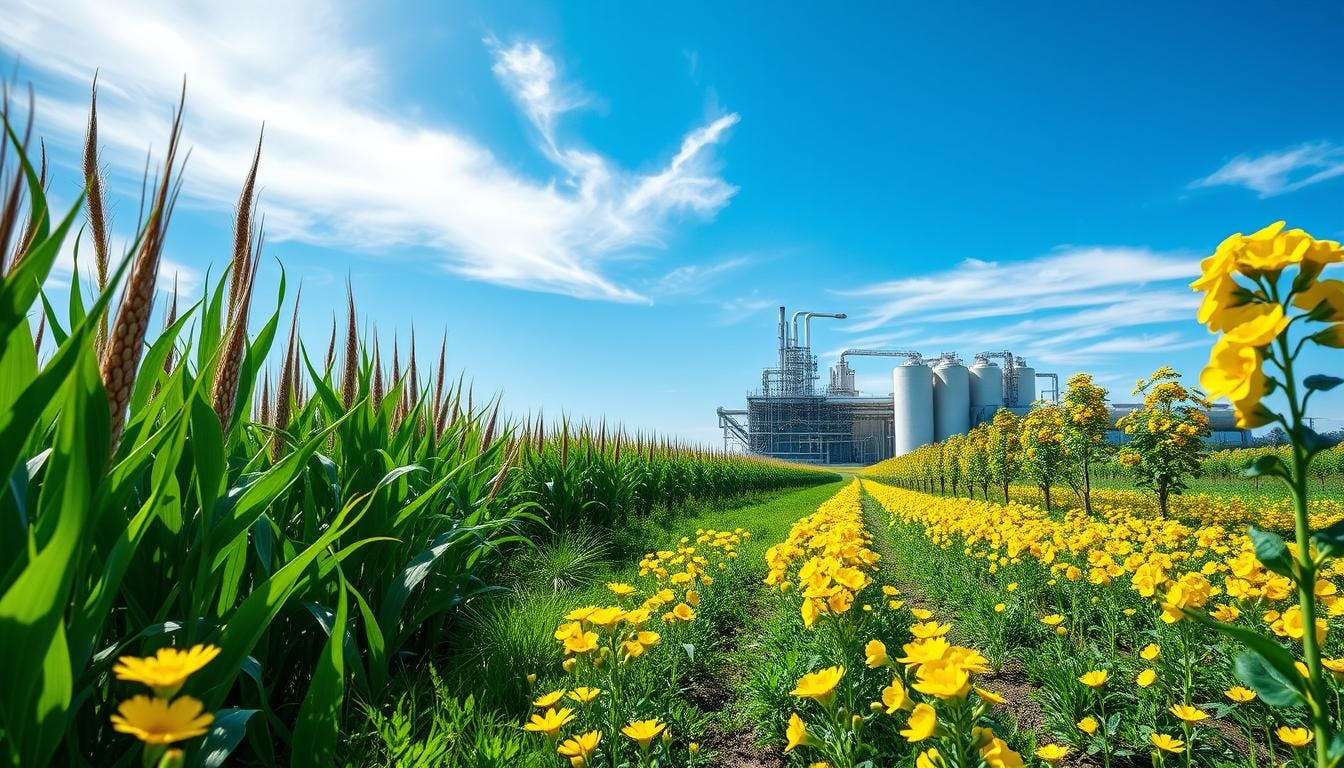
Feedstocks for SAF production
The journey to more sustainable skies is filled with numerous renewable options. The United States can collect approximately 1 billion dry tons of biomass each year, which is essential for producing sustainable jet fuel feedstocks, renewable aviation fuels, and alternative aviation fuel resources.
These biofuel feedstocks for aircraft come from a variety of sources, including corn grain, oilseeds, algae, and low-carbon aviation fuel inputs. This diversity presents a significant opportunity to make the aviation industry more sustainable.
With numerous renewable aviation fuel biomass options, the aviation sector can progress towards zero emissions. Utilising these sustainable aircraft fuel sources and environmentally sound aviation fuel raw materials contributes to reducing carbon emissions. This represents a significant advancement towards a more sustainable future in air travel.
Economic opportunities and job creation
Expanding domestic sustainable aviation fuel (SAF) production can create new economic opportunities and support jobs across the United States. Using renewable and waste resources to produce SAF can help rural areas thrive. It also bolsters the alternative aviation fuels industry and sustainable aircraft fuel opportunities.
The production, supply, and utilisation of environmentally responsible jet fuel can generate jobs in various sectors, including feedstock farming, manufacturing, and aviation. Experts estimate that up to 1.4 million jobs could be created in SAF production facilities, with another 12.6 million jobs potentially supported in the wider supply chain and related industries.
These new economic benefits can greatly assist rural communities, as much of the biomass feedstock for SAF originates from these areas. Investing in low-carbon aviation fuel production can create jobs and promote sustainable development in these regions, while also strengthening local economies and aiding the aviation industry in becoming more sustainable.
With the right policies and investments, the domestic SAF industry can have a significant impact. It can create valuable opportunities for American workers and help foster a truly renewable and sustainable aviation sector.
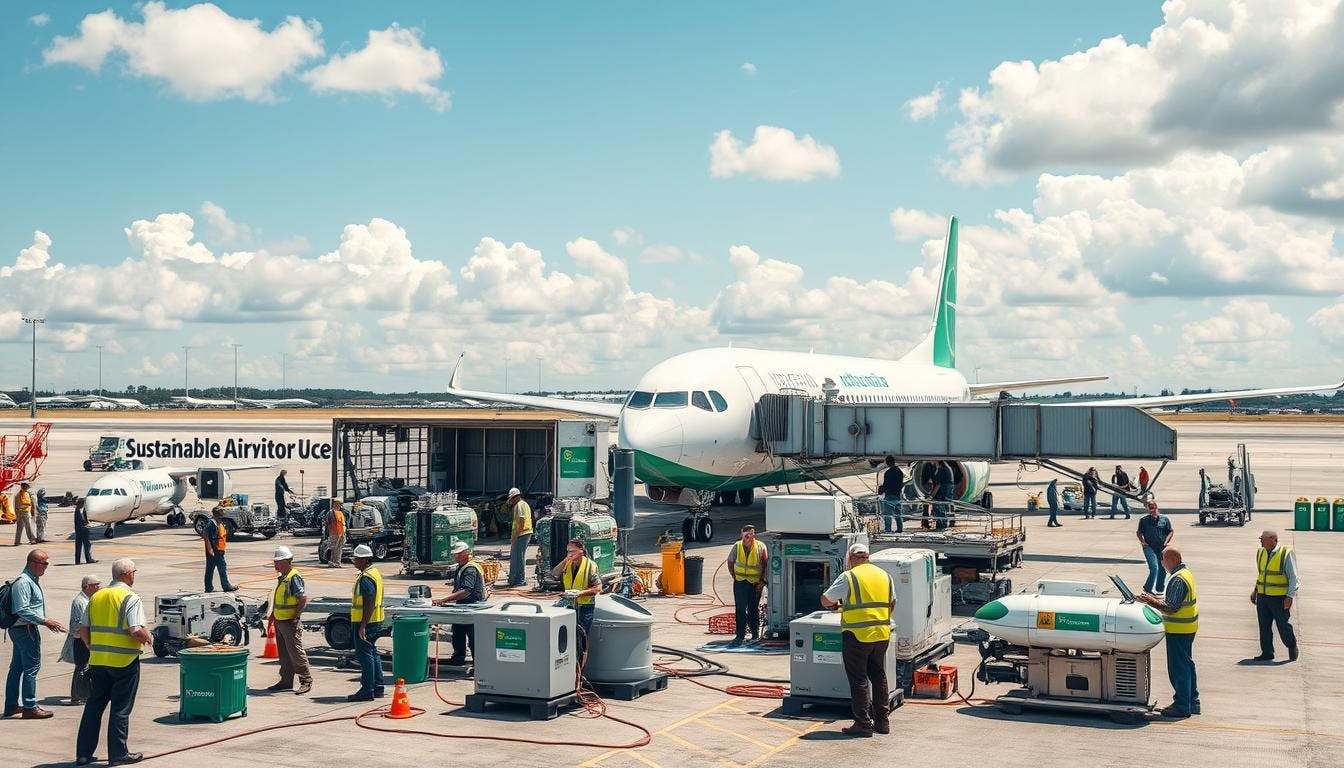
Emerging SAF pathways
Researchers are diligently working to make aviation more sustainable by discovering new ways to produce sustainable aviation fuel (SAF) from renewable and waste materials. These innovative methods aim to meet stringent fuel standards and explore new possibilities in sustainable aviation fuel.
One promising approach involves producing SAF from wet waste, such as food waste and animal manure. This process allows us to convert waste into cleaner jet fuel, thereby reducing greenhouse gas emissions. Additionally, scientists are investigating the use of bio-based polycyclic alkanes, which involves upgrading bio-acetone derived from biomass to be compatible with existing aviation systems.
Another area of focus is the conversion of waste gases into ethanol for "alcohol-to-jet" SAF. This method utilises industrial waste, thereby decreasing emissions and creating jobs. These new avenues, supported by funding and research, are paving the way for a future where sustainable jet fuel is essential to a more sustainable aviation sector.
17 South Street
Auckland 1010
New Zealand
info@carbonclick.com- -
- X
Subscribe now to stay up to date with CarbonClick, carbon offsetting and climate action.
By signing up you agree to our Privacy Policy.


